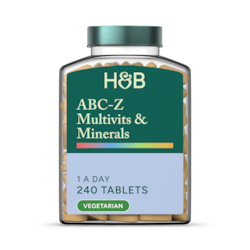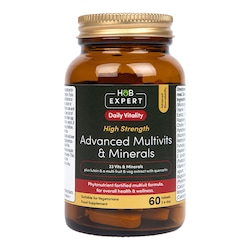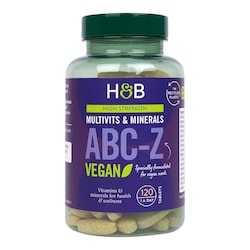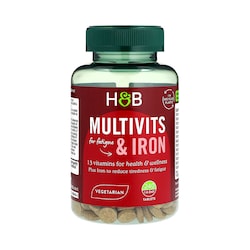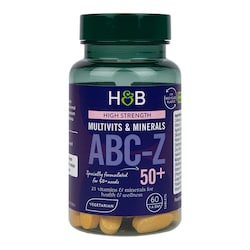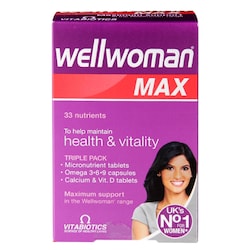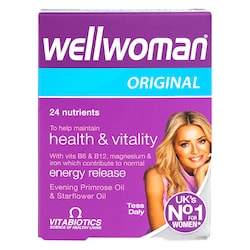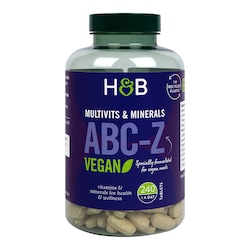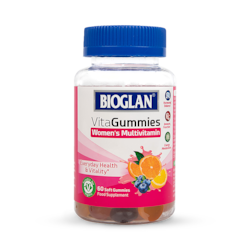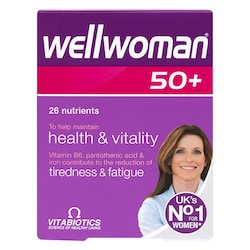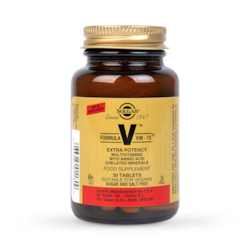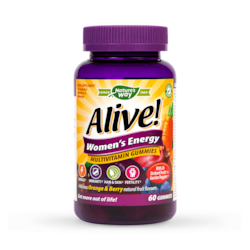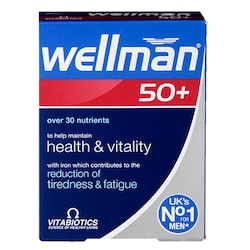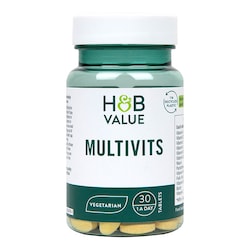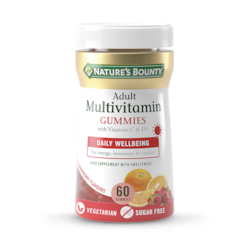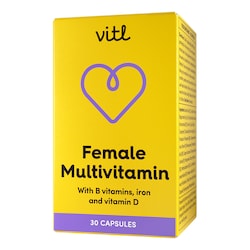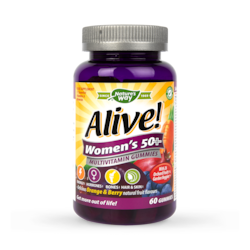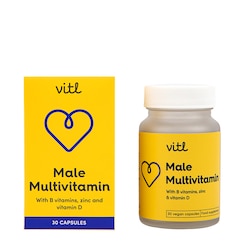15% off £30 OR 20% off £40
Code:CHOOSE
Is timing everything? Why it matters when you take your supplements

Taking all your supplements in one go? There’s a better way. Your routine can make or break how your body benefits from those nutrients, according to our expert
Summary
1Why can’t I just take all my supplements at once?
When it comes to health, it can be tempting to simply pop all your supplements first thing in the morning...
2Are there any supplements I shouldn’t combine?
While some nutrients can be more effective when taken together, others have the opposite effect...
3When should I take common supplements?
Good question! Let’s break down the optimal timing for some of the most popular vitamins and supplements...
Do you take your supplements first thing in the morning, or are you more likely to dig them out of your desk drawer between afternoon Zoom calls?
Whatever your routine, you’ve probably put a lot of thought into remembering to take them – and very little into when you take them. Staying consistent with supplements is hard enough, right?
It turns out, however, that we could all be missing a trick by choosing random moments that suit our routines. Here, H&B nutritionist Chandni Vadgama explains why checking the label and the timing your supplements could enhance their impact, reduce unwanted effects and help you get more from every day.
Why can’t I just take all my supplements at once?
When it comes to health, it can be tempting to simply pop all your supplements first thing in the morning, so you don’t have to think about it again. However, Chandni cautions that this may not be the best approach. "Some supplements are best taken with meals to avoid gastrointestinal discomfort, while others are more effectively absorbed at specific times of the day,” she explains.
A key factor in determining when to take your vitamins is whether they are water-soluble or fat-soluble. Water-soluble vitamins, like B vitamins and vitamin C, dissolve in water and are absorbed quickly into your bloodstream.1
“Since they aren't stored in the body, you need a frequent replenishment of them to maintain consistent levels in your bloodstream,” Chandni explains. These can be pee’d out of your system when your body’s had enough, so there’s less risk of going over the limit (still stick to the label) – though if you’re trying to conceive, are pregnant or have a health condition, you should always check before taking supplements.
“On the other hand, fat-soluble vitamins, like vitamins A, D, E and K, are stored in your body’s fat tissue and liver,” she continues. “They're generally absorbed better alongside a meal containing healthy fats.”
That’s why it’s always best to check the label and stagger your supplements appropriately, so you can be sure you’re not overlapping or ‘double dosing’ vitamins across different supplements. Also, keep an eye on fortified foods especially if you’re taking high-dose supplements; they can contain extra vitamins and minerals into your diet and sometimes push you over the recommended limits.

Are there any supplements I shouldn’t combine?
While some nutrients can be more effective when taken together, others have the opposite effect. “For example, calcium and iron supplements shouldn’t be taken at the same time because calcium can interfere with iron absorption,” says Chandni. “Space these two out by a couple of hours to get the full benefit from each.”2
Other dietary supplements may have blood-thinning effects when taken with other medication like anticoagulants, so please always talk to your doctor before trying new supplements.3 That’s why we always recommend talking to your GP about your supplement routine, especially if you have any health conditions or concerns.
When should I take common supplements?
Good question! The best routine is one that fits with your lifestyle and ensures you remember to take your supplement at the same time each day. Let’s break down the optimal timing for some of the most popular vitamins and supplements:
Start your day by taking your probiotics with your breakfast, as you generally don't want to consume on an empty stomach. Make sure to check the label, too. “Steer clear of hot drinks alongside your probiotics, as they can kill off beneficial bacteria and reduce their effectiveness,” Chandni explains.
Around one in six UK adults aren’t getting enough vitamin D,4 and nearly one in ten are deficient in vitamin B125 – “vitamin B12 is effective for reducing fatigue," Chandni notes.
If you’ve taken calcium in the morning, you’ll want to stagger your iron supplement a few hours later, so you don’t affect its absorption.
“Joint support tablets can be taken at any time but pairing them with a meal or snack is smart to avoid stomach issues," Chandni advises.
You should always follow the directions on the product label. The above only applies to some probiotics, vitamins B and D, iron and joint supplements. Products may be formulated differently, and the above may not apply.
How about winding down?
As you wind down for the night, you may want to try a magnesium bath. "Magnesium is believed to help with muscle relaxation and sleep, so timing it right can amp up its calming effects just before you plan to fall asleep,” says Chandni.
Can’t I just take a multivitamin in the morning and call it a day?
Multivitamins are a convenient catch-all for many people and there are lots of different types to suit your needs. However, they might not always be the most effective option, especially if you have a dietary requirement
“Multivitamins contain a variety of essential nutrients, but they often don’t cater to individual needs, especially for those with specific deficiencies,” says Chandni. "Some vitamins are better absorbed on an empty stomach, while others require food. And if certain ingredients interact negatively, they won’t be absorbed properly."
For instance, vegans or vegetarians may need extra B12 or iron, while someone else might benefit from calcium which is needed for maintaining normal bones. Simply relying on a multivitamin might not effectively address any underlying deficiencies that could be affecting your health.
How do I know if I’m mistiming my supplements?
“Nausea and gastrointestinal discomfort are two big warning signs that you’re taking too many supplements at once, or need to pair a supplement with food,” says Chandni. “Feeling unusually tired during the day or struggling with sleep at night can also indicate issues with timing.” Of course, these can also be signs of an underlying health condition, so you should rule that out with a medical professional first.
She continues: “Supplements can take many weeks to work, but if you’re not seeing the expected benefits, it could mean your body isn’t absorbing the supplements properly, possibly due to when or how you’re taking them – so again it’s worth consulting with a GP to get your vitamin levels checked.”
The final say
When it comes to supplements, timing really can make a difference. By reading the label and paying attention to factors like whether they’re water or fat soluble, how they interact with each other and their effect on your body, you could boost their effectiveness and avoid some common mistakes if you take them at the recommended time – so check the labels.
Wondering how else you can maximise your routine? Find out the best times of day to take protein.
The advice in this article is for information only and some of the information reflects the opinion of our in-house nutritionist and should not replace medical care. Please check with your GP or healthcare professional before trying any supplements, treatments or remedies. Food supplements must not be used as a substitute for a varied and balanced diet and a healthy lifestyle.
1. Health NRC (US) C on D and. Water-Soluble Vitamins [Internet]. www.ncbi.nlm.nih.gov. National Academies Press (US); 1989. Available from: https://www.ncbi.nlm.nih.gov/books/NBK218756/
2. Abioye AI, Okuneye TA, Odesanya AMO, Adisa O, Abioye AI, Soipe AI, et al. Calcium Intake and Iron Status in Human Studies: A Systematic Review and Dose-Response Meta-Analysis of Randomized Trials and Crossover Studies. The Journal of Nutrition [Internet]. 2021 Mar 23;151(5):1084–101. Available from: https://academic.oup.com/jn/article/151/5/1084/6184159?login=false
3. Hatfield J, Saad S, Housewright C. Dietary supplements and bleeding. Baylor University Medical Center Proceedings. 2022 Sep 15;35(6):802–7.
4. Department of Health and Social Care. New review launched into vitamin D intake to help tackle health disparities [Internet]. GOV.UK. 2022. Available from: https://www.gov.uk/government/news/new-review-launched-into-vitamin-d-intake-to-help-tackle-health-disparities
5. NHS . Vitamin B12 or folate deficiency anaemia [Internet]. NHS. 2019. Available from: https://www.nhs.uk/conditions/vitamin-b12-or-folate-deficiency-anaemia/



